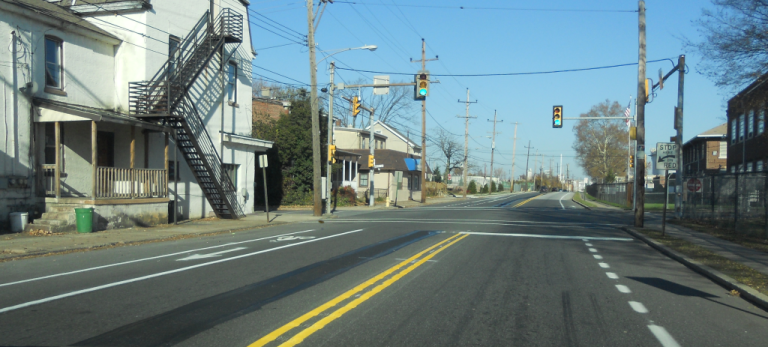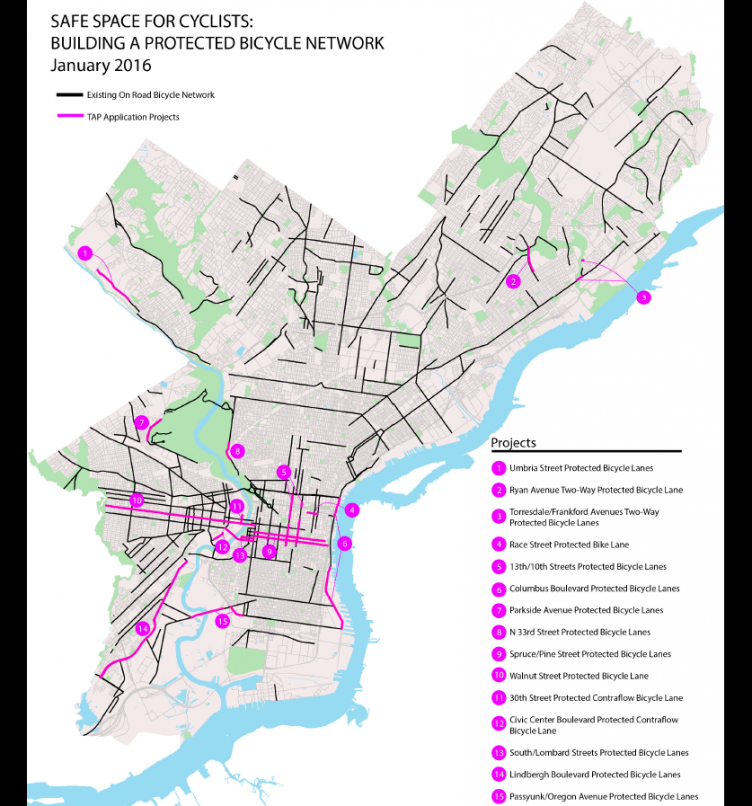
Editor’s Note: Over the next week, the Bicycle Coalition will be showcasing our Year-in-Review, which is also available at BicycleCoalition2016.org
At the quarterly Pedalcycle & Pedestrian Advisory Committee meeting on March 17, PennDOT announced to its participants that it would initiate a pilot program to advance bicycle facilities on state roads in two metro regions: the Delaware Valley Regional Planning Commission PA counties and the Harrisburg area.
The announcement was a major breakthrough and represented a first step toward PennDOT removing the onerous Bicycle Occupancy Permit as an obstacle to the placement of bicycle lanes or other facilities on state roads.
We’d been advocating for a solution to this obstacle since 2005. Earlier in March, we wrote about how several Pennsylvania bicycling advocacy groups were coming together to get rid of the Bicycle Occupancy Permit, after the Bicycle Coalition of Greater Philadelphia organized a sign-on letter to Secretary Richards.
Vision Zero Symposium
The Bicycle Coalition held its second Vision Zero Forum. This one was on safety cameras and how automated enforcement can help create safer spaces for all road users in cities.
Protected Lanes Get Funded
The city got a $300,000 grant for new protected bike lanes — part of a $7.6 million Transportation Alternatives Program (TAP) package from the Delaware Valley Regional Planning Commission to the region.
The lanes planned for physical protection and safety projects by the city were outlined on the map below, and detailed in Plan Philly.

It was cause for nervous optimism about Philly’s future; Chestnut Street’s lane in West Philadelphia is ripe for a safety upgrade. Spruce and Pine Streets’ 10-foot buffered bike lanes are also ready for upgrades to help keep Philadelphia’s cycling community safe, designs and community outreach for which will come in 2017.
Additionally, the $300,000 grant is one of the two grants the city needs to put in protected infrastructure. Currently, Philadelphia is still waiting for a second TAP grant from the state of Pennsylvania.
